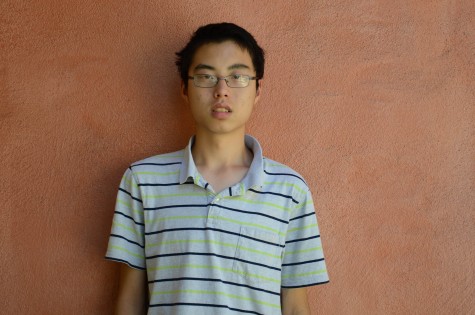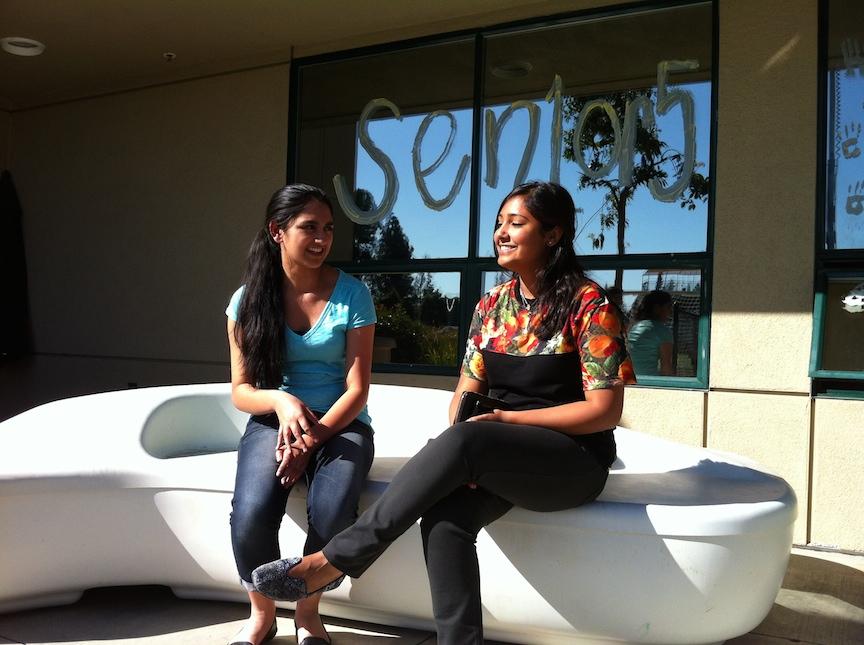Siemens competition research papers submitted
Harker students recently submitted research papers for the National Siemens Competition, a contest that involves conducting independent research and articulating findings in a formalized document.
49 students submitted research papers for the National Siemens Competition, which were due Sept. 30. Harker students have been participating in the competition since 2008. Since then, the Upper School has had a total of ten regional finalists and two national semi-finalists.
“I think that [the Siemens Competition] is great for setting an arbitrary deadline for students to create a technical writing document and providing experience,” Upper School physics teacher Chris Spenner said. “And I think it is great for students to engage in a serious research project.”
Freshmen, sophomores, and juniors had to work with a partner, but seniors could choose to work individually. Each group of students submitted a research report on a study they conducted. 300 reports will be selected by professionals studying a similar topic and the students who authored them will continue on to the semifinal round.
Many participants in the competition worked under a lab director who provided support and ideas for suitable topics to research. Usually the director would assign the students to a mentor who taught the necessary material and skills needed to proceed with the experiment.
“The SIP Harker program helped by connecting me with a partner from another school and a very helpful mentor, a postdoc from UCSC. Writing the paper was relatively easy due to the presentation my partner and I did at the end of SIP,” Evan Lohn (11) said.
The time to prepare for the experiment ranges from a couple months to two to three years. In that time, students worked to familiarize themselves with their topic.
“I started working on my project since the beginning of the summer all the way until the due date,” Michael Zhao (11) said.
Science teachers, such as Upper School biology and psychology teacher Jeff Sutton, served as mentors to help make edits and improve the quality of the papers. Students could choose a mentor through their internships. At school, students were assigned a mentor by science department chair Anita Chetty.
The Siemens Competition is just one out of the many science based contests that are popular amongst students at Harker. Despite Harker’s reputation as a STEM school, English teacher Ohad Paran commented that he believes the humanities are just as important and popular as the science and math based ones.
“Really when you get down in to talking to individual people, they like science a lot, and they want to succeed, but there is almost as many, if not just as many, who enjoy both,” Paran said. “And the beauty of going to a school like Harker is that you have the freedom to explore. You can do whatever you want.”
This piece was originally published in the pages of the Winged Post on October 17, 2014.
Raveena Kapatkar (12) is the Co-Editor-in-Chief of Harker Aquila. She is a senior and this is her fourth year on staff. As a freshman, she was a reporter...

Stanley Zhao (12) is the business manager of the Winged Post. He is a senior this year. Stanley is part of the math club and is currently conducting a...


















![“[Building nerf blasters] became this outlet of creativity for me that hasn't been matched by anything else. The process [of] making a build complete to your desire is such a painstakingly difficult process, but I've had to learn from [the skills needed from] soldering to proper painting. There's so many different options for everything, if you think about it, it exists. The best part is [that] if it doesn't exist, you can build it yourself," Ishaan Parate said.](https://harkeraquila.com/wp-content/uploads/2022/08/DSC_8149-900x604.jpg)




![“When I came into high school, I was ready to be a follower. But DECA was a game changer for me. It helped me overcome my fear of public speaking, and it's played such a major role in who I've become today. To be able to successfully lead a chapter of 150 students, an officer team and be one of the upperclassmen I once really admired is something I'm [really] proud of,” Anvitha Tummala ('21) said.](https://harkeraquila.com/wp-content/uploads/2021/07/Screen-Shot-2021-07-25-at-9.50.05-AM-900x594.png)







![“I think getting up in the morning and having a sense of purpose [is exciting]. I think without a certain amount of drive, life is kind of obsolete and mundane, and I think having that every single day is what makes each day unique and kind of makes life exciting,” Neymika Jain (12) said.](https://harkeraquila.com/wp-content/uploads/2017/06/Screen-Shot-2017-06-03-at-4.54.16-PM.png)








![“My slogan is ‘slow feet, don’t eat, and I’m hungry.’ You need to run fast to get where you are–you aren't going to get those championships if you aren't fast,” Angel Cervantes (12) said. “I want to do well in school on my tests and in track and win championships for my team. I live by that, [and] I can do that anywhere: in the classroom or on the field.”](https://harkeraquila.com/wp-content/uploads/2018/06/DSC5146-900x601.jpg)
![“[Volleyball has] taught me how to fall correctly, and another thing it taught is that you don’t have to be the best at something to be good at it. If you just hit the ball in a smart way, then it still scores points and you’re good at it. You could be a background player and still make a much bigger impact on the team than you would think,” Anya Gert (’20) said.](https://harkeraquila.com/wp-content/uploads/2020/06/AnnaGert_JinTuan_HoHPhotoEdited-600x900.jpeg)

![“I'm not nearly there yet, but [my confidence has] definitely been getting better since I was pretty shy and timid coming into Harker my freshman year. I know that there's a lot of people that are really confident in what they do, and I really admire them. Everyone's so driven and that has really pushed me to kind of try to find my own place in high school and be more confident,” Alyssa Huang (’20) said.](https://harkeraquila.com/wp-content/uploads/2020/06/AlyssaHuang_EmilyChen_HoHPhoto-900x749.jpeg)



